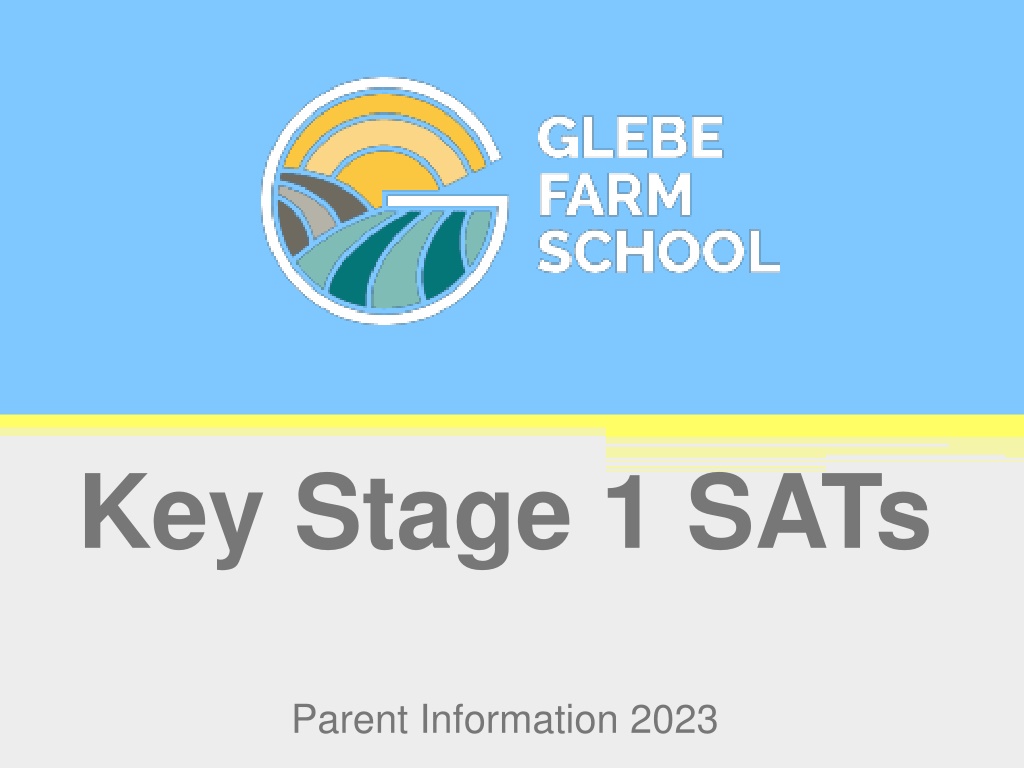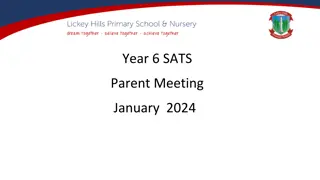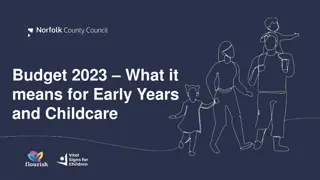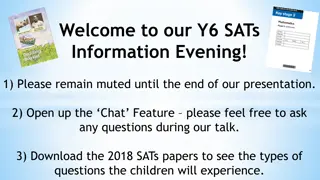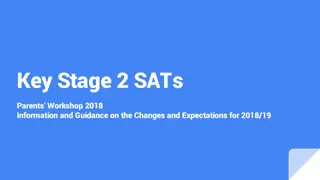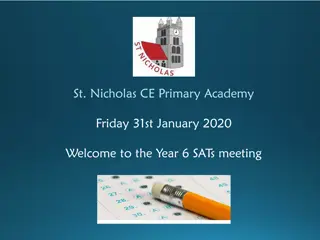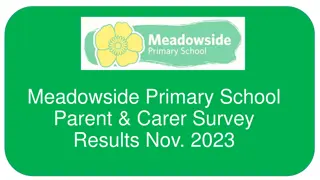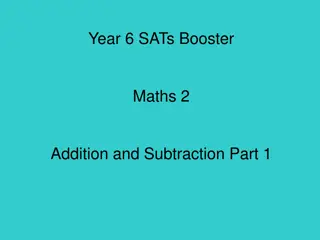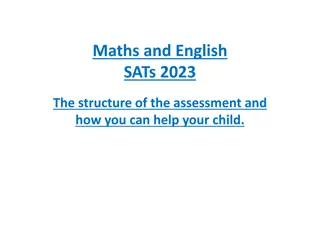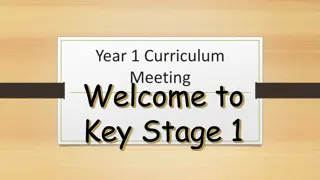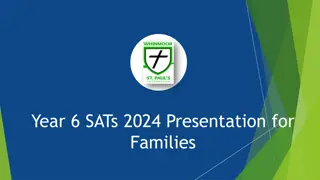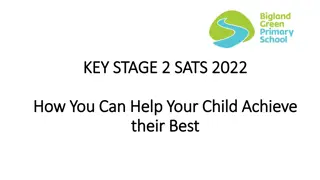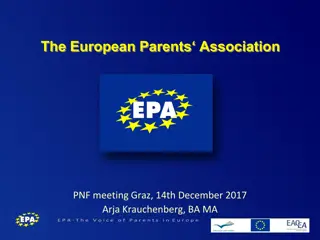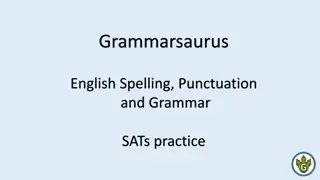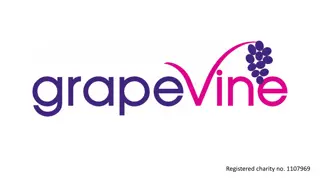Key Stage 1 SATs Overview for Parents 2023
Understand Key Stage 1 SATs, their aims, format, and impact on children's attainments. Learn about the test papers in English Reading, Grammar, Spelling, and Mathematics. Find out how you can support your child at home for these national assessments held in May.
Download Presentation

Please find below an Image/Link to download the presentation.
The content on the website is provided AS IS for your information and personal use only. It may not be sold, licensed, or shared on other websites without obtaining consent from the author. Download presentation by click this link. If you encounter any issues during the download, it is possible that the publisher has removed the file from their server.
E N D
Presentation Transcript
Key Stage 1 SATs Parent Information 2023
Aims: Explanation of what Key Stage 1 SATs are. Give you an understanding of the format of the tests. Explain how tests results affect judgements on children s attainments. Explain SATs revision club. Recommend how you can help your child at home.
What are SATs? At the end of Year 2, children in England sit national tests in the following subjects, the results are used to measure the school s performance:- *English Reading *English Grammar, Punctuation & Spelling *Mathematics Arithmetic & Reasoning These tests reflect the updated national curriculum and are marked using the current grading system, which now replaces levels.
What are SATs? Continued Key Stage 1 SATs take place nationally in the month of May. There are no tests administered in science. All tests are internally marked. As in recent years, writing will be teacher assessed internally and moderated in the year group. Testing is low key to ensure children are not worried or anxious about taking them.
Overview of test papers: Reading Paper 1 - consists of a combined reading prompt and answer booklet. The test takes approximately 30 minutes. Reading Paper 2 - consists of an answer booklet and a separate reading booklet. It contains more challenging texts than Paper 1. The test takes approximately 40 minutes. Maths Paper 1 - arithmetic consists of a single test paper and takes approximately 20 minutes. Maths Paper 2 - reasoning consists of a single test paper and takes approximately 35 minutes. The paper includes a practice question and 5 aural questions. After the aural questions, the time allowed for the remainder of the paper should be around 30 minutes. GPS Paper 1 - spelling consists of a test transcript to be read by the test administrator and an answer booklet for pupils to write 20 spellings. The paper takes approximately 15 minutes. GPS Paper 2 - questions is a combined question and answer booklet focusing on pupils knowledge of grammar, punctuation and vocabulary. The paper takes approximately 20 minutes.
Teacher Assessment / Results: KS1 SATs tests are one part of evidence towards the whole teacher assessment. They are marked in school, and an overall grading based on the whole year s work will be made. The results of the SATs tests are reported to the Local Authority. Moderation often takes place to ensure consistency across schools.
KS1 SATs Revision Club: Every Tuesday 3:30pm until 4:30pm 25 minutes on English skills / questions 10 minute snack and juice 25 minutes on Mathematics skills / questions
How can you help at home? First and foremost, support and reassure your child that there is nothing to worry about and they should always just try their best. Help your child with reading, listen to them read and focus on bringing out a love of reading . Also reading stories to your child allows them to develop language, listening skills and comprehension. Encourage making predictions of what might happen next. Help your child with writing, support with weekly spellings. Write together to make shopping lists and letter writing. Help your child with maths, play times table games. Encourage them to help with cooking, weighing and measuring ingredients. Work out what time it is together. Provide opportunities for your child to pay for things in a shop, to work out how much things cost and how much change will be needed.
Useful Websites: https://www.bbc.co.uk/bitesize https://www.ictgames.com/mobilePage/index.html https://whiterosemaths.com/advice-and-guidance#start https://nrich.maths.org/maths-at-home https://mathszone.co.uk/ https://www.topmarks.co.uk/maths-games https://www.topmarks.co.uk/maths-games/hit-the-button
The tests are part of the process. We use the data from the tests to challenge or confirm our overall teacher assessment. Thank you for reading! If you have any further questions, please do not hesitate to ask Miss Wells.
